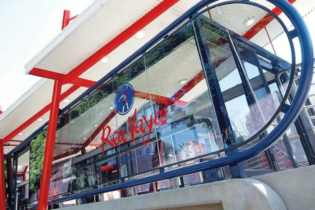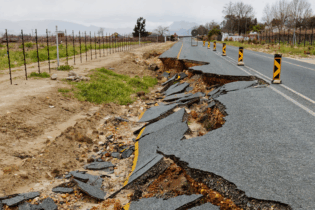The Eastern Cape’s leading Maritime business and policy leaders will seek to unlock the region’s full potential and share breaking opportunities in the ‘blue economy’ with small and big business at the Eastern Cape Maritime Summit on November 13 in Port Elizabeth.
With the theme of promoting business opportunities in the Maritime sector, the Conference, which runs concurrently with an exhibition, features leading business figures, including the MD of Tag Yachts Tim van der Steene and the CEO of the Marine Industry Association of South Africa, Vanessa Davidson. South African Maritime Safety Association’s Brian Colenutt, Coega’s Principal Officer, John Lawlor of JWL Logistics and MSC’s Arthur Waters are among the experts that will contribute to a session on Opportunities in Maritime Transport, which includes shipping, shipbuilding and logistics. Opportunities in Aquaculture and Fishing will be represented by among others, one of South Africa’s leading small fishing companies – Cape Town based MC5, while South African Oil and Gas sector and Maritime Skills and training will also come under the spotlight. Opportunities in Tourism will be highlighted and by WESSA’s Matheanne Finnemore, Dr Shirley Parker-Nance, fishing guru Wayne Rudman and Global Tourism Consultant, Peter Myles, who will have just returned from the World Ocean Council Sustainable Ocean Summit in Singapore. The Director of Sustainable Seas Trust, Tony Ribbink will unpack the opportunity for the region around its possible inclusion as a Global Hope Spot. Developments and opportunities created around the province’s three ports and within the East London and Coega IDZ will be showcased together with global developments and networks which are influencing business prospects in the sector, with the CEO’s of the East London IDZ and Transnet Port Terminals, also presenting. The Eastern Cape Maritime Summit on November 13 in Port Elizabeth will spur trade and investment in the region and assist entrepreneurs and investors understand how to tap into the “blue economy”, increasingly hailed as South Africa’s proverbial golden goose, says Nelson Mandela Bay Business Chamber Director Kevin Hustler. The Eastern Cape Province with its 800km of coastline, and three ports, among the fastest growing terminals in the world – is set to become South Africa’s leading hub of maritime economic activity and while government’s Operation Phakisa had effectively placed the maritime economy well onto the development agenda, business lacked knowledge and resources to tangibly enter the sector, he says. The Maritime Summit, he said, will address, at a practical level, actual opportunities and how businesses and entrepreneurs can access them, through case-studies and other expert presentations. The idea would be to alternate the event annually between the Province’s major centres.Plenary sessions, followed by break-away streams focussed on specific opportunities in Transport, Aquaculture and Tourism will draw over 300 national delegates.
The tradeshow, featuring up to 60 exhibiting organisations would spur sales and contracts between buyers and suppliers in the sector nationally, said Andrew Binning, CEO of Inkanyezi Event Organisers. “We want to provide critical information and resources without the Summit becoming another talk shop – so opportunity and sales are the two key themes.” The Summit is presented under the auspices of the Nelson Mandela Bay Maritime Cluster with the collaboration of Eastern Cape Socio-Economic Consultative Council, the Eastern Cape Development Corporation, the Nelson Mandela Bay Business Chamber, Border-Kei Chamber of Business and the Eastern Cape Department of Transport, the custodian of Maritime transport in the region, among others. The South African government announced in October 2014 that it would be implementing ocean economy projects, which it expected to contribute more than R20 billion to the country’s gross domestic product by 2019. These projects form part of the government’s National Development Plan. South Africa’s oceans have the potential to contribute up to R177-billion to the GDP and create over 1 million jobs by 2033 according to government agencies. Binning said the drive for the region to maximise its participation in the global “blue economy”, was strengthened with the launch of the South African International Maritime Institute (SAIMI) in Nelson Mandela Bay and the development of a Maritime School at the NMMU. Compelling additional factors, Binning said, included the fact that between 60% & 70% of the world’s fish species were exhausted. And, with 1 of 5 individuals globally relying on ocean food as sources of protein, aqua-farming, as an example, was a highly viable proposition, notwithstanding the obstacles to production. “80% of the country’s trade is carried out by sea and it has therefore become necessary to prioritise the shipping industry. South Africa is one of the top 15 shipping countries in the world in terms of the tonnage transported to and from its ports. This presents significant opportunity in the movement of goods, ship repair, ship chandlers and others with tourism, environmental protection and desalination additional focus points, Binning said.





